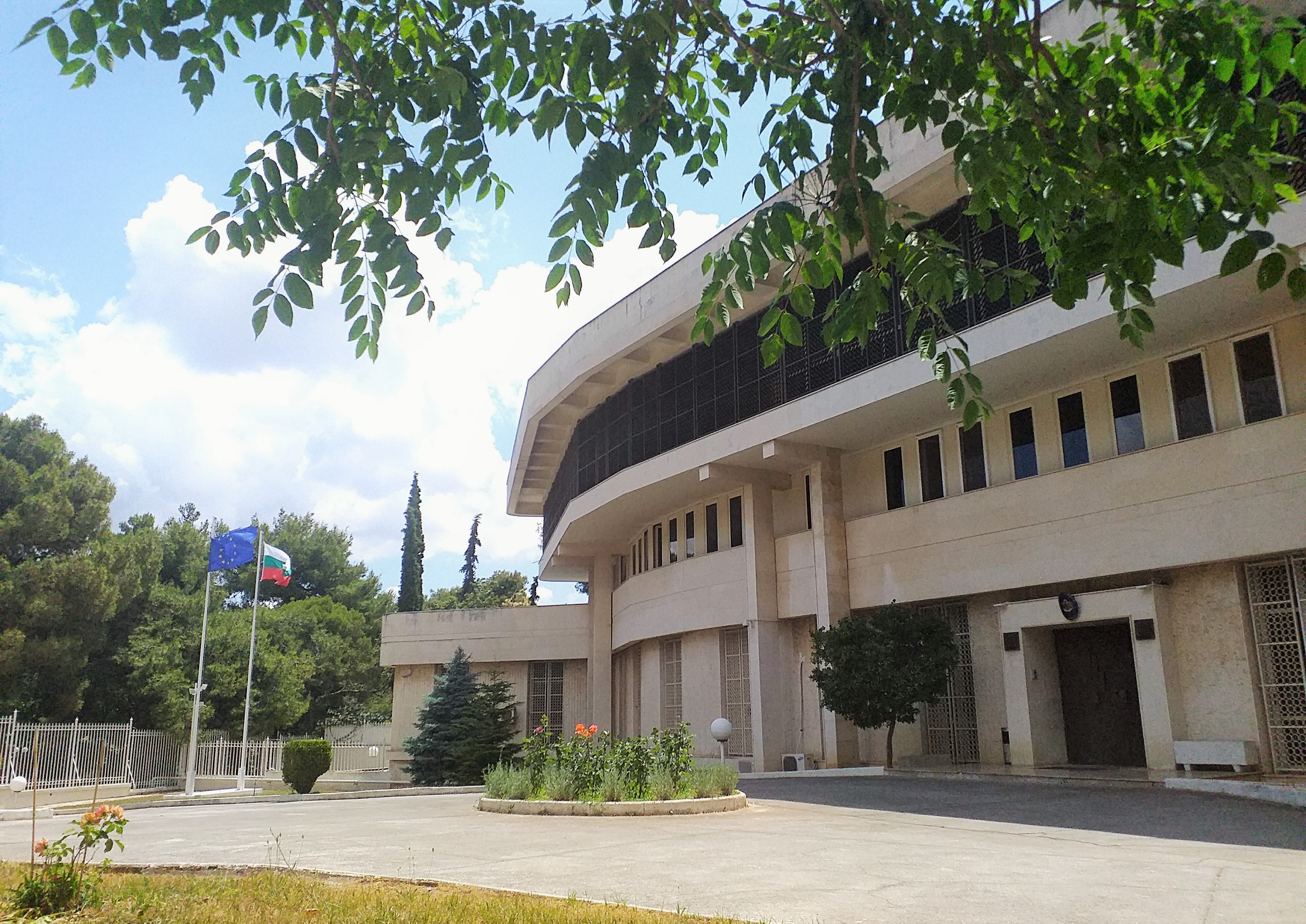An Article by Valentin Poriazov, Ambassador of Bulgaria to Greece, for "To Vima"
12 May 2021 News
I am writing with regard to an interview with Mr. Nikola Dimitrov published in your paper on 25 April, entitled “The case of North Macedonia: a challenge to the EU’s credibility”.
Indeed, the case of North Macedonia is a challenge but rather to its own credibility as a candidate country.
The problem between Bulgaria and the Republic of North Macedonia (I will use RNM only for reasons of brevity) is not the one that Mr. Dimitrov alleges in his interview.
Bulgaria does not have any claims to RNM’s sovereignty, nor does Bulgaria dispute the sovereign right of RNM’s citizens to self-identify or call their language as they deem fit. Pretending otherwise is merely an attempt to vilify Bulgaria’s stance.
Bulgaria was the first to recognize this country and to provide vital economic and military assistance for its survival. We prevented the post-Yugoslav conflict from engulfing the then fYROM. Under the Bulgarian Presidency in 2018 we actively promoted Skopje’s EU perspective. We unconditionally supported RNM’s accession to NATO, as it anchored it to the West and its defense alliance.
In the meantime, Skopje did not depart from the ideological tenets of the Yugoslav era. Skopje continued to derive its identity from falsifying and appropriation of Bulgaria’s history. RNM should stop any claims towards Bulgaria’s history and geography, as it did recently vis-à-vis Greece.
Contrary to a common belief, historical disputes are not simply academic. They have very tangible repercussions nowadays.
Falsified history is largely present in RNM’s textbooks. Three generations of citizens, whose ancestors until the middle of the XX century had identified themselves as Macedonian Bulgarians, have been educated in hatred towards Bulgaria. It is precisely on those historical falsifications that Skopje builds its minority claims against Bulgaria.
After the disintegration of Yugoslavia, Skopje missed the opportunity to break with the atavistic state doctrine of “Makedonism”. Once serving Yugoslavia's territorial aspirations towards Greece and Bulgaria, it has continued to be the essence of RNM's foreign and domestic doctrine. This led to decades-long dispute with Greece, and to maintaining irredentist claims against Bulgaria.
All new EU member states have had the courage to face their totalitarian past. This process was painful yet necessary if we were to learn the lessons of the past. Opening of the Yugoslav era archives would reveal a very dark page in RNM’s history. They contain evidence of the ethnic engineering, launched in the mid-40’s, show trials against Bulgarians and mass executions in 1945 known as "The Bloody Christmas". In August 1945, at Belgrade’s and Moscow’s will, the local Bulgarian dialect was proclaimed as the official “Macedonian language", while concentration camps like Goli Otok were crammed with people opposing the ethnic engineering.
Hate speech against Bulgaria and discrimination against Macedonian Bulgarians have been present throughout the communist and post-communist history of RNM. The most visible recent example relates to the RNM’s Eurovision representative Vasil Garvanliev who dared to declare his Bulgarian origin. Two former Prime Ministers of RNM – Mr. Ljubco Georgievski and Mr. Vlado Buckovski, as well as the former Foreign Minister Mr. Denko Maleski, have all publically spoken about the Bulgarian roots of the RNM’s slavic people and the need to overcome the legacy of communist Yugoslavia. All of them were subjected to furious hate speech and threats.
These cases span beyond the bilateral relations between Sofia and Skopje. They put into question the compliance of a candidate country with the Copenhagen criteria.
That is why Bulgaria has proposed provisions in the draft Negotiating Framework for the RNM’s accession negotiations, allowing for an effective monitoring of the implementation of bilateral treaties (i.e. with Bulgaria and with Greece).
Regretfully, Skopje continues to rely on lobbying and hopes for a change in our position. This approach is not reasonable, it is naïve. Bulgarian public opinion is overwhelmingly supportive of the positions I have explained. Bulgaria cannot give up its more than a thousand-years-old national history. We cannot distort the family history of millions of Bulgarian citizens, heirs of Macedonian Bulgarians, and retroactively define them as “Macedonians” to the liking of Skopje.
Instead of blaming Bulgaria with false arguments, Skopje should find ways to return to a rational public narrative and a meaningful dialogue. This process can take years, as the experience with Greece shows, but it can also proceed much quicker. Despite all odds, Bulgaria remains open for dialogue.
Related files
